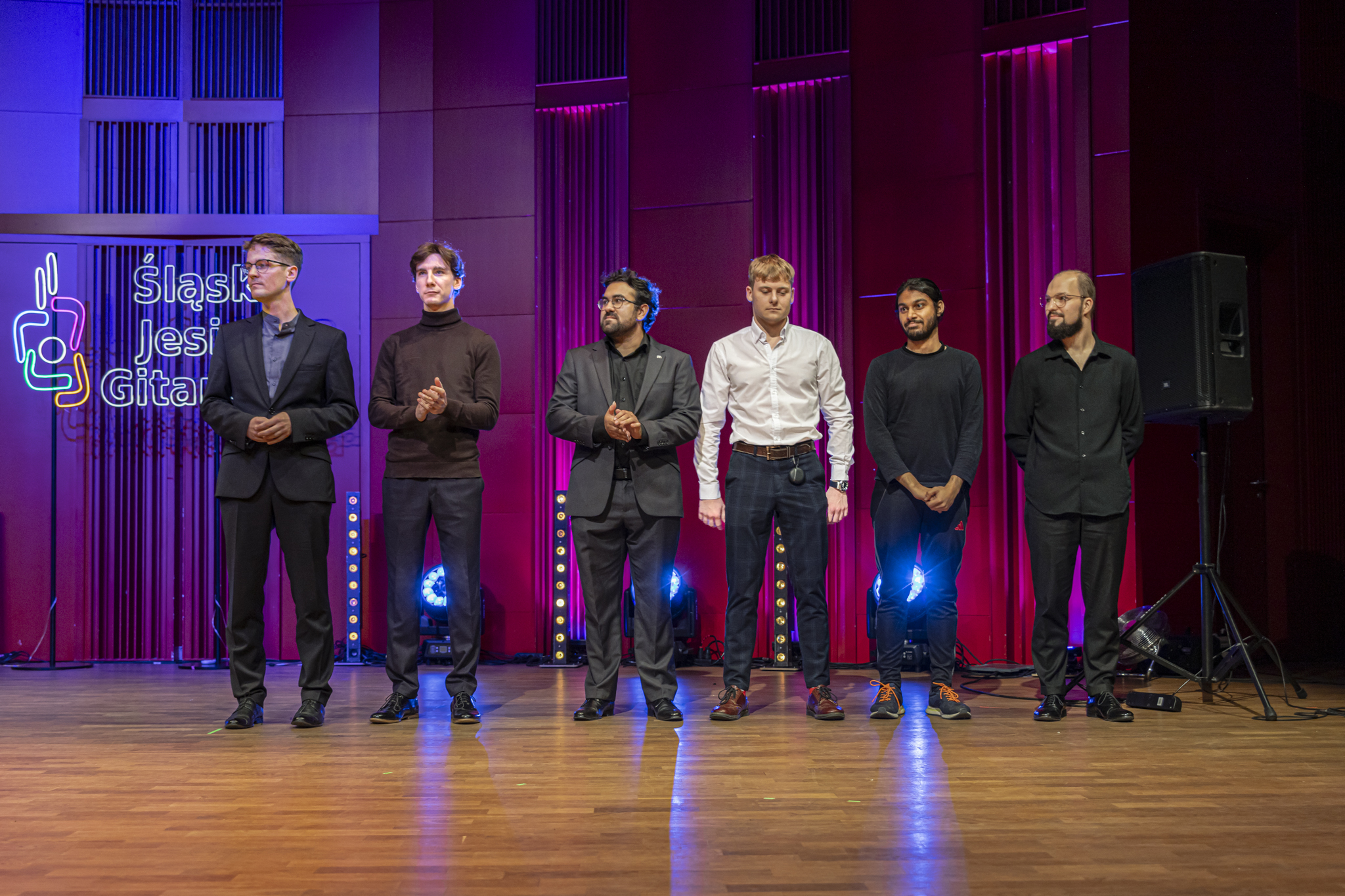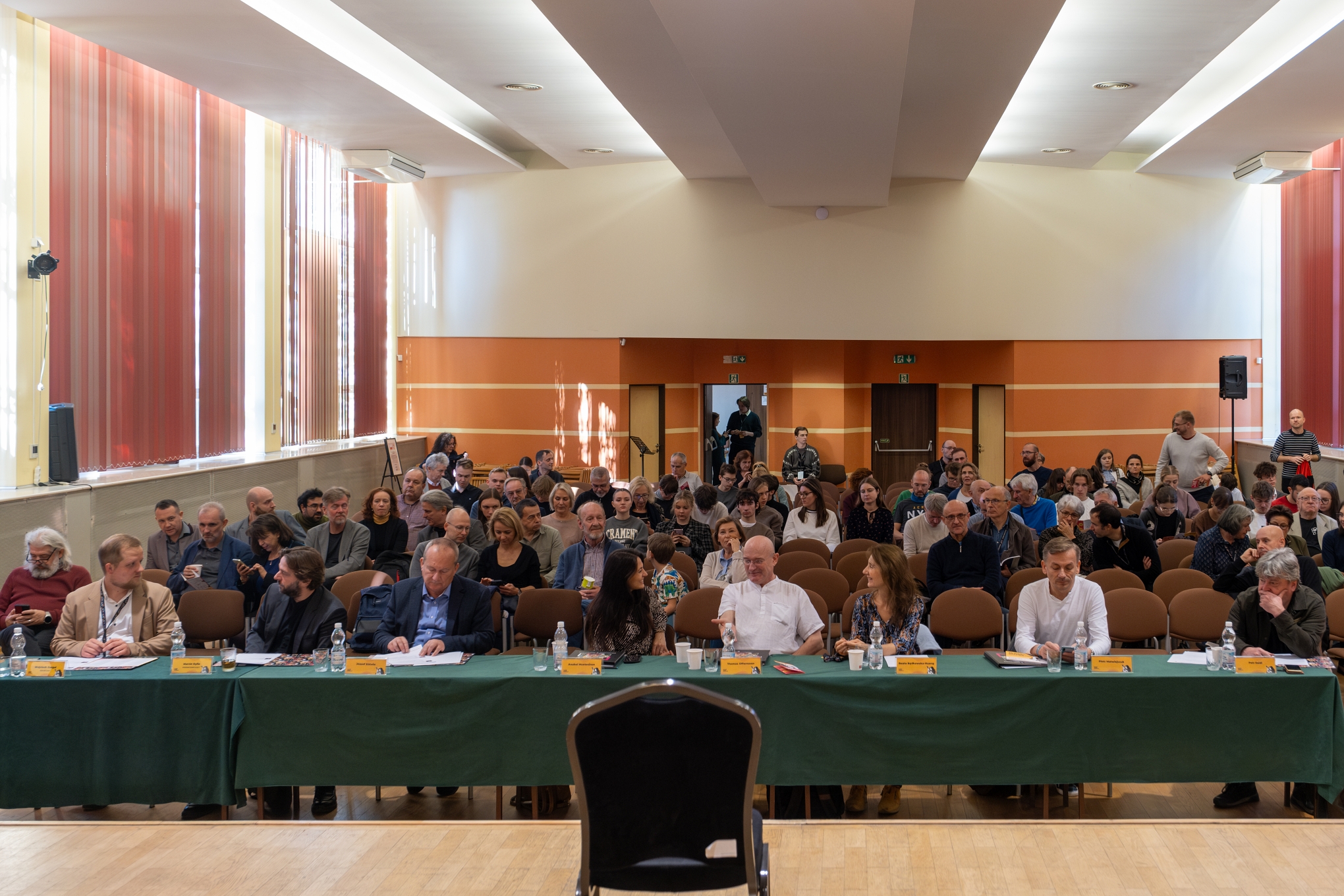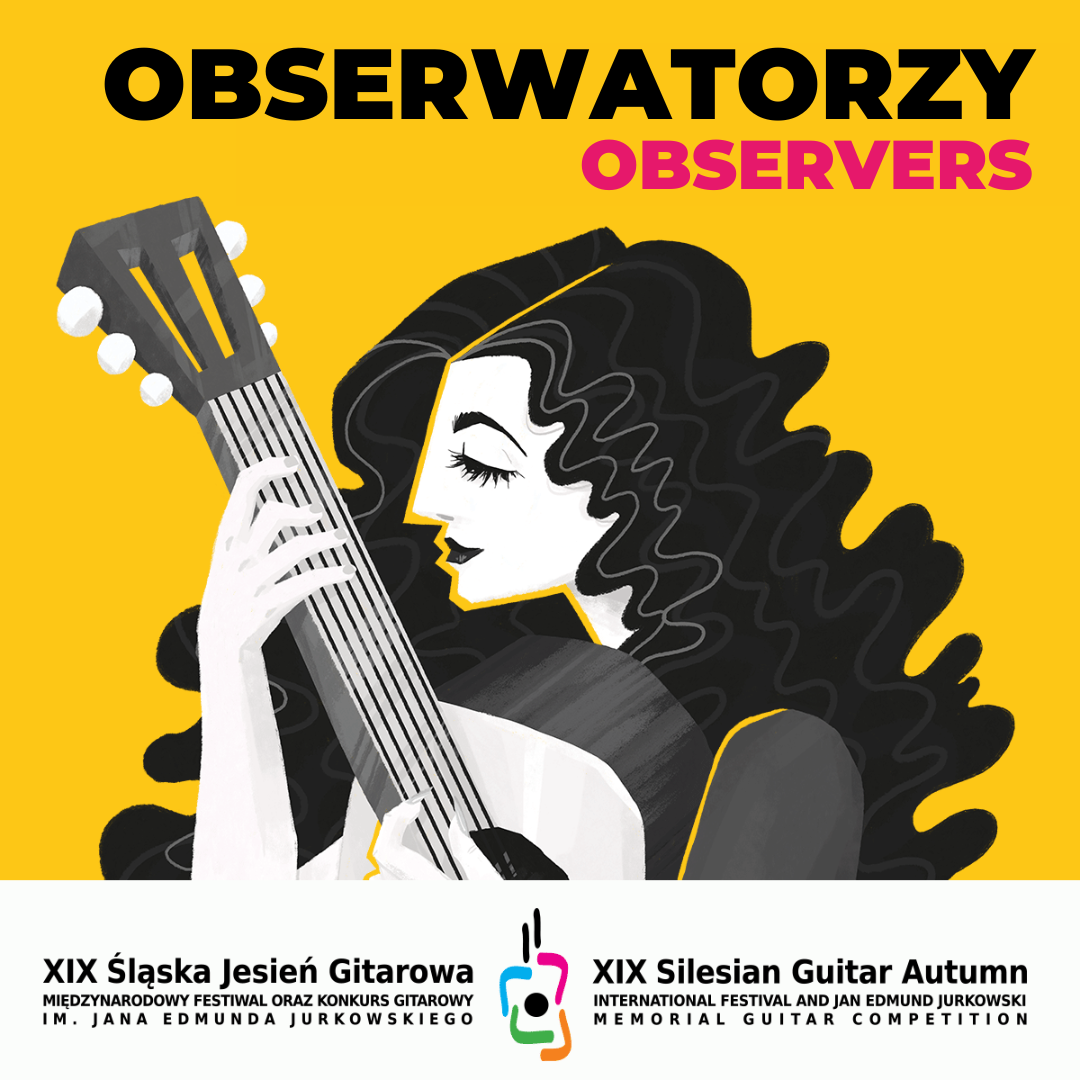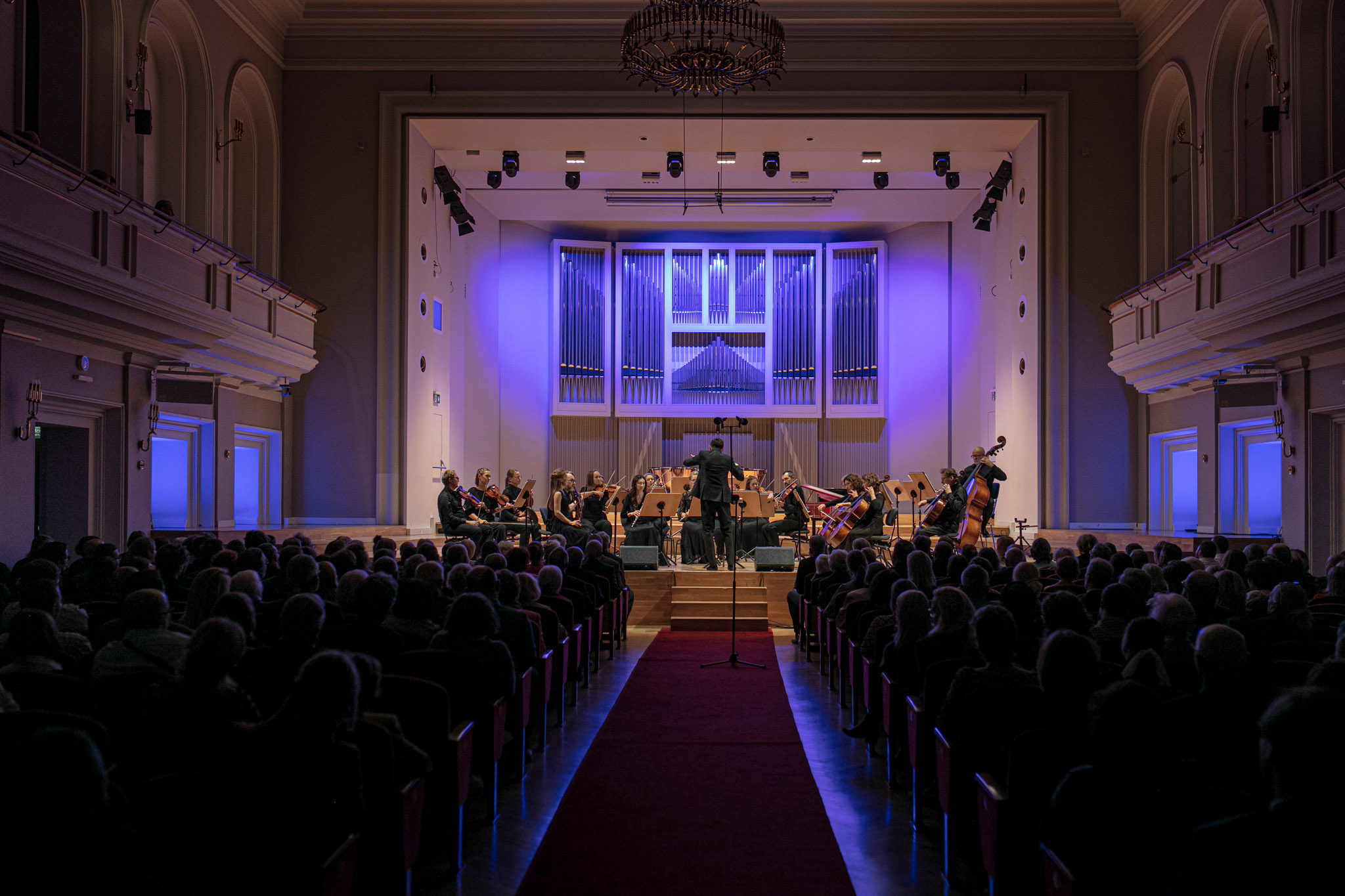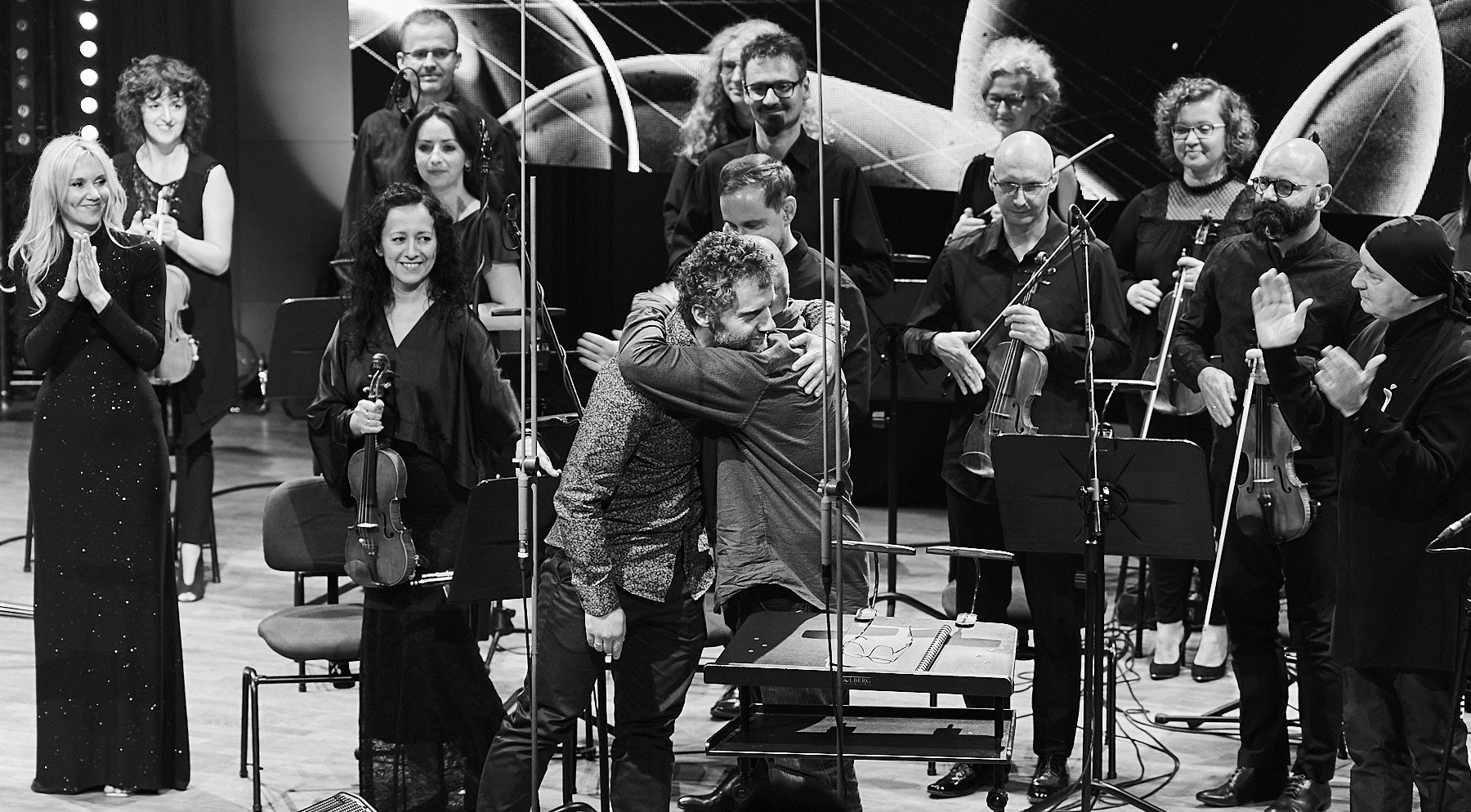
A Piece is a Mystery
Wojciech Gurgul talks with Aleksander Nowak, an outstanding Polish composer, and the author of a piece commissioned for the 19th ‘Silesian Guitar Autumn’ International Festival.
What is the Silesian Guitar Autumn to you?
It is a festival I have been aware of for a long time, which I sometimes attended as a beginner guitarist, and at which I finally established myself as a composer in 2008 and 2012. I am very grateful to the then director, Alina Gruszka.
Do you recall any particular performances during the festival?
Yes, I remember Marcin Dylla as an already recognized artist, but still before his greatest successes. He made a great impression—not only through his playing but also with his entire personality on stage.
You have mentioned that you attended the festival as a beginner guitarist. For many music enthusiasts, this may be a surprising fact because, in their minds, you are primarily a composer. Nonetheless, how do you remember that period?
I started quite late and struggled for a long time with the feeling that I had to make up for various shortcomings. I’m slowly starting to move past it.
What were your beginnings as a composer like? Was it writing at the instrument, or was it the need to break away from the guitar idiom?
Right from the start, I tried writing for different instruments and ensembles. For the guitar as well, but it was especially difficult; I had the impression that if I played the instrument at best at an average level, I would write for it in the same way.
Despite this, you did not completely give up composing for the guitar. How would you characterise your existing body of work for the guitar?
I have written two concertos (both commissioned by the Silesian Guitar Autumn), two solo compositions (for the guitar, for Łukasz Kuropaczewski), and one for guitar and violin (for Agata Szymczewska and Łukasz Kuropaczewski). In addition, I used the guitar as a concert instrument in the drama Siren. Melodrama aeterna. I also wrote a piece that was a mandatory selection in the Jan Edmund Jurkowski Memorial Guitar Competition in 2008. The composition did not meet with a warm reception from the participants… The organisers had to add another piece to the selection. Only Dawid Bonk decided to perform my piece (I am very grateful to him for that). It has taught me a lot.
Among the compositions which you mentioned, there are solo works, chamber pieces, and even a work that borders on music theatre (Ballada [Ballad]). In which of these contexts do you find the guitar best suited?
Actually, I forgot about “Ballada”. It is a commemorative piece, written on the occasion of the closure of the National Audiovisual Institute (NInA), unique nature. It is difficult to call it a guitar piece, as the guitar only appears in a parodic manner. In every context the guitar has its advantages. What interests me most about it is the intimacy of the performer’s contact with the material – every aspect of the sound is shaped through direct contact between the body and the instrument (without the mediation of hammers, flaps, valves, etc.). This happens somewhat at the expense of volume, but there are ways to address that, as we know.
Does being a guitarist help you in composing for the guitar, or is it rather a burden (in the context of what is known as the memory of genres)?
As mentioned before, I see serious dangers here, but with an increasing compositional awareness, it seems easier to avoid them.
You use both classical guitar and other varieties of the instrument (jazz guitar in Siren. Melodrama aeterna). Do you consider it to be one instrument, or do you approach the various types of guitar differently?
Each piece is a little different and each time I consider the instrumentation to some extent from scratch. But I also try very hard to stay true to the nature of the instrument, so (I hope) the guitar remains the guitar, the violin remains the violin, and so on.
In recent years, you have been known to the audience in Tychy primarily as the creator of award-winning operas and musical dramas. Do you consider yourself a coherent creator in the context of such different types of music, like guitar compositions and vocal-instrumental works, or do you notice differences in the way you work on your compositions?
I feel like I am a synthesist. I believe that we live in a time which calls for the integration of the very diverse achievements from the past few decades. Coherence is not the ultimate goal, but I am sure that it develops over time.
For this year’s edition of the festival you have composed Episodic Concerto for Guitar, Percussion and Strings. Could you elaborate on the concepts behind this composition? What does the title of the piece mean?
I don’t like to elaborate on the compositions, especially before they have been premiered. To some extent, the piece before its premiere is a mystery to me. The title partially reveals the form—specifically, the episodic nature. But it can also be interpreted differently. For some time now, I have been writing a kind of work journal; the idea is to record what accompanies the creation of a piece, which then disappears once the music is composed. If anyone is interested, I invite you to check: https://www.aleknowak.com/log/c/koncert-epizodyczny-na-gitare-perkusje-i-smyczki.
It’s the second time you have re-tuned the instrument in a guitar concerto – in Concerto for Guitar in Peculiar Tuning it was a partial quarter-tone scordatura D-F-H-fis-c¼↓-d¼↑. What does this element mean to you?
In the latest piece, the scordatura only applies to the lowest string (E). The idea of re-tuning itself intrigues me because it allows me to depart from the sound idiom that is very characteristic of the guitar and, how should I put it, somewhat worn-out. But it used to bother me more than it does today.
How does the new composition relate to the previous guitar concerto?
I cannot answer that. I am certainly in a different place and a different person, both as a composer and as an individual. But perhaps someone else might want to delve into the details someday.
Do you compose with a specific artist in mind? This year, the concerto will be premiered by Łukasz Kuropaczewski, with whom you have already collaborated several times before.
Yes, usually. I am extremely fortunate to work with outstanding performers, including guitarists, who choose to play my compositions. But this does not necessarily affect the matter itself.
Do you have any other guitar pieces in the pipeline?
I don’t have any specific plans at the moment, but sooner or later, I will likely compose some more pieces. Perhaps let’s see how the premiere goes first…

